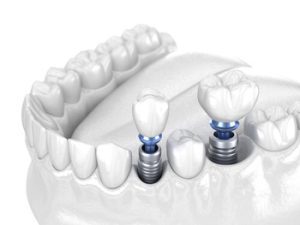Dental implants are a favoured and effective tooth replacement option, offering a long-lasting solution for missing teeth. When pursuing a low-cost dental implant, Vietnam has claimed a reputation as a destination for dental tourism, attracting patients with its significantly lower costs.
While the initial dental implant cost in Vietnam may appear enticing, a closer examination reveals a stark contrast in the quality of care offered compared to Australian dental practitioners.
This extensive article delves into the key considerations when weighing the benefits and risks of dental implant tourism in Vietnam against the advantages of seeking treatment from experienced and qualified Australian dentists.
We’ll explore the crucial differences in regulations, the potential risks associated with dental tourism, and the long-term value proposition of prioritising quality care in Australia.
By equipping yourself with this crucial information, you can make a wise decision that prioritises your dental health and well-being for years to come.
Dental Implants: A Revolutionary Approach To Tooth Replacement

These small, screw-like posts, typically crafted from biocompatible titanium, are surgically positioned within the jawbone to resemble the function and structure of a natural tooth root. This innovative approach provides a stable foundation for a variety of replacement teeth, including crowns, bridges, and dentures.
Beyond their remarkable aesthetic appeal, dental implants offer a multitude of upsides that significantly enhance a patient’s oral health and overall well-being:
Unmatched Aesthetics And Confidence
Dental implants are meticulously designed to seamlessly integrate with your existing teeth. The replacement tooth (crown) attached to the implant is custom-made to perfectly match the size, shape, and colour of your natural teeth, leading to a flawless and natural-looking smile.
This restored aesthetic can significantly boost your confidence and self-esteem, allowing you to smile freely and comfortably in any social setting.
Enhanced Functionality And Dietary Freedom
Missing teeth can significantly hinder your ability to chew effectively, leading to dietary limitations and digestive issues. Dental implants, however, function just like natural teeth, allowing you to bite, chew, and speak with renewed confidence and ease.
Exceptional Durability And Long-Term Investment
Dental implants are known for their stellar longevity. When properly cared for with meticulous dental hygiene practices and regular checkups, implants can last for decades, even a lifetime, for some patients.
This outstanding durability makes dental implants a cost-effective investment in your long-term oral health, eliminating the need for repeated replacements associated with traditional dentures or bridges.
Improved Speech Clarity
Missing teeth, particularly in the front row of the mouth, can significantly impact your speech. Slurring or mumbling can become common, affecting communication and social interaction. Dental implants, by restoring the natural structure and support of your teeth, help improve your speech clarity and articulation.
Preserves Jawbone Health And Structure
The jawbone naturally relies on stimulation from the roots of teeth to maintain its density and structure. When teeth are missing, this stimulation is lost, resulting in bone loss in the jaw over time. Dental implants foster the jawbone and prevent bone resorption.
This preservation of jawbone health ensures a stable foundation for your facial structure and prevents the sagging appearance that may occur with missing teeth.
A Comparative Analysis: Dental Implant Regulations In Australia Vs. Vietnam
The significant cost disparity between dental implants in Vietnam and Australia presents a tempting proposition for dental tourists. However, a closer inspection reveals a stark contrast in each nation’s regulatory environment governing dental care.
Understanding these disparities is crucial for patients seeking optimal outcomes from dental implant surgery.
Australia: A Stringent Framework For Patient Safety
Australia upholds a rigorous healthcare system anchored by the Australian Health Practitioner Regulation Agency (AHPRA). This translates to several key advantages for patients pursuing dental implant treatment:
- Meticulous Qualifications And Training: Australian dentists are required to complete extensive education and training, encompassing university degrees, internships, and rigorous licencing examinations. This ensures high competency and expertise in performing complex procedures like dental implant surgery.
- Uncompromising Hygiene Protocols: Australian dental clinics adhere to meticulously designed infection control protocols, minimising the risk of infections and complications associated with dental implant surgery. These protocols encompass sterilisation procedures, meticulous equipment maintenance, and the proper handling of all dental materials.
- High-Quality, Biocompatible Materials: Australian regulations mandate the utilisation of high-quality, biocompatible materials for dental implants. This ensures the long-term functionality, safety, and successful integration of the implants with the jawbone.
These stringent regulations prioritise patient well-being and safety, fostering a culture of excellence within Australian dentistry.
Vietnam: A Landscape Of Varied Standards
In contrast, the regulatory landscape surrounding dental care in Vietnam presents a picture of less transparency. While some Vietnamese clinics may adhere to international standards, the absence of a unified and rigorously enforced regulatory body poses significant risks for dental tourists:
- Uncertain Qualifications Of Practitioners: The qualifications and experience of Vietnamese dentists treating foreign patients can vary considerably. Difficulty verifying credentials can increase the risk of encountering practitioners with limited experience or expertise in dental implant surgery.
- Inconsistent Hygiene Standards: The lack of standardised hygiene protocols in some Vietnamese clinics can elevate the risk of infections and complications during or after dental implant surgery. Stringent hygiene protocols are paramount to minimising the risk of infection and ensuring successful healing.
- Potential Use Of Substandard Materials: The potential use of substandard or non-biocompatible materials in some Vietnamese dental clinics can compromise the long-term success and safety of dental implants. Substandard materials can lead to implant failure, infection, and other complications.
These uncertainties highlight the inherent risks associated with dental tourism, where cost savings come at the expense of patient safety and long-term oral health outcomes.
Beyond Regulations: Risks Of Dental Tourism
Even in seemingly reputable Vietnamese clinics, dental tourism carries inherent risks that extend beyond the limitations of regulations:
- Communication Challenges:
Language and cultural differences can hinder effective communication between patients and dentists. This can lead to misunderstandings regarding treatment plans, potential complications, and post-operative care instructions.
- Limited Follow-Up Care: Obtaining proper follow-up care after returning from Vietnam can be challenging and expensive. Complications arising after the initial procedures may necessitate additional treatment from a local dentist unfamiliar with the specifics of the implant surgery performed abroad.
- Difficulties With Legal Recourse: In the unfortunate event of complications or unsatisfactory results, pursuing legal recourse against a Vietnamese dental clinic can be a complex and costly endeavour. Geographical distance and differing legal systems can create significant hurdles to holding foreign clinics accountable.
Warning Signs: Identifying Less-Than-Ideal Dental Implant Providers
Selecting a dentist for dental implant surgery necessitates a meticulous approach. Certain red flags can indicate that a particular dental practice may not be in your best interest.
Here’s a comprehensive overview of key warning signs to be aware of:
Unusually Low-Cost Estimates
Dental implant surgery is a complex procedure involving high-quality materials and experienced professionals. Excessively low-cost estimates for dental implants should raise a red flag.
Additionally, very low costs may suggest the involvement of dentists with limited experience or qualifications in performing implant surgery.
Limited Transparency Regarding Credentials And Information
A reputable dental clinic will readily provide comprehensive information about the qualifications and experience of their dentists. Be wary of hesitant or evasive clinics when you enquire about such details.
High-Pressure Sales Tactics
A trustworthy dental practice will prioritise a collaborative approach, ensuring you have ample time to ask questions, discuss treatment options, and make an informed decision.
Beware of clinics that pressure you to commit to treatment immediately without allowing sufficient time for research and consideration. This pressure tactic may indicate a focus on profit over patient well-being.
Insufficient Focus On Patient History And Oral Health Evaluation
A thorough dental consultation is a crucial initial step in the dental implant process. If the consultation feels rushed or fails to address your medical history and oral health in detail, it may suggest a less-than-ideal approach to patient care.
Making Dental Implants Affordable In Australia: Strategies For Cost Management
While the initial cost of dental implants in Australia may seem higher compared to Vietnam, there are several strategies you can employ to make this life-changing treatment more financially accessible:
Consider Payment Plans
Many Australian dental clinics recognise the cost considerations associated with dental implant treatment. To make this investment more manageable, these clinics provide flexible payment plans that may be tailored to your individual budget. Enquire about available financing options during your consultation.
Explore Dental Insurance Coverage
Some dental insurance plans offer partial coverage for dental implant procedures, depending on the specific policy. Contact your insurance company to determine the extent of coverage your plan offers.
Take Advantage Of Introductory Offers
Some dental clinics may offer introductory discounts or special packages for dental procedures. Be on the lookout for such promotions, particularly during new patient consultations or seasonal campaigns.
Enquire About Scan Discounts
Dental implant surgery typically involves 3D scans to assess your jawbone health and plan implant placement precisely. Certain clinics may offer discounts on these scans when bundled with the overall implant treatment package.
Navigating The Dental Implant Journey In Australia: A Step-By-Step Guide
Dental implant surgery is a multi-stage process designed to restore missing teeth with a long-lasting and natural-looking solution. Understanding the different phases involved in Australian dental implant procedures empowers you to make informed decisions throughout your treatment journey.
Initial Consultation: Establishing Candid Communication And Treatment Goals
The cornerstone of a successful dental implant experience is a comprehensive initial consultation with your chosen Australian dentist.
During this consultation, your dentist will:
- Discuss Your Goals And Expectations: A detailed conversation will explore your reasons for seeking dental implants, your desired aesthetic outcomes, and any functional concerns you may have regarding missing teeth. This open communication allows the dentist to design the treatment plan to meet your requirements and preferences.
- Evaluate Your Medical History: A thorough review of your medical history is paramount to identifying potential risk factors or underlying conditions that may impact the suitability of dental implants. Complete transparency regarding your medical background ensures the dentist can develop a safe and appropriate treatment plan.
- Perform A Comprehensive Oral Examination: A meticulous oral examination will be conducted to assess your jawbone health, gum tissue condition, and the location and number of missing teeth. This examination may involve X-rays or other diagnostic tools to obtain a complete picture of your oral health.
- Determine Candidature For Dental Implants: Based on the information gathered during the consultation, your dental expert will determine whether you are suitable for the implant surgery. Factors such as jawbone density and overall oral health will be considered in this evaluation.
Treatment Planning: Charting The Course For A Successful Implant Journey
If you are deemed a suitable candidate for dental implants, your dentist will move forward with developing a customised treatment plan.
By design, this plan will outline the specific steps involved in your implant surgery, including:
- Number And Location Of Implants: The dentist will determine the optimal number and precise location of implants needed to restore your missing teeth and achieve the desired functional and aesthetic outcome. For example, some patients get a single dental implant, whereas others require multiple dental implants.
- Bone Grafting (If Necessary): In some cases where jawbone density is insufficient to support implants, getting a bone graft may be necessary. This preliminary step involves transplanting bone material to create a durable implant foundation.
- Surgical Procedure Details: Your dentist will explain the specifics of the dental implant surgery, including the type of anaesthesia used and the anticipated duration of each stage.
- Recovery Timeline And Post-Operative Care: A clear recovery timeline will be established, outlining the typical healing period after each stage of the surgery. Additionally, detailed instructions regarding post-operative care, including pain management and proper oral hygiene practices, will be provided.
Dental Implant Placement: A Precise Surgical Intervention
The dental implant placement phase is typically performed under local anaesthesia, ensuring comfort throughout the procedure.
The exact surgical method may vary depending on your individual needs but generally involves the following steps:
- Placing Dental Implants: The dentist carefully creates small incisions in the gum tissue and precisely inserts the titanium implants into the jawbone.
- Healing And Osseointegration: After implant placement, a crucial healing period is necessary. During this time, the jawbone fuses with the implants through a process known as osseointegration, creating a strong and stable foundation for the replacement teeth.
Abutment Placement: Connecting The Implants To The Replacement Teeth
Once the implants have successfully osseointegrated with the jawbone, a second surgical intervention may be required to place the abutments.
Abutments are small connector pieces that attach to the implants and serve as the foundation for the artificial teeth (crowns) or prosthetics (bridges or dentures). This procedure typically involves minimal discomfort and can often be performed under local anaesthesia.
Crown Or Prosthetic Attachment: Completing Your Smile Restoration
The final stage involves attaching the artificial teeth to the abutments. This may involve custom-made crowns for single or multiple missing teeth or a bridge or denture for more extensive restorations.
Your dental expert will ensure a precise fit and natural appearance for the replacement teeth, restoring your smile’s aesthetics and functionality.
Safeguarding Your Investment: Long-Term Care For Dental Implants
Following dental implant surgery, a commitment to meticulous oral hygiene practices becomes paramount to ensuring your implants’ long-term success and optimal functionality. By prioritising proper care, you can safeguard your investment in dental implants and promote exceptional oral health for years to come.
- Brushing And Flossing: Maintain a meticulous hygiene routine, brushing twice and flossing at least once to get rid of plaque and bacteria around the implants.
- Regular Dental Checkups: Adhere to regular dental checkups and cleanings with your dental expert to track the overall health of your implants and their surrounding gum tissues.
- Dietary Considerations: Avoid hard or chewy foods that can damage the implants or crowns.
- Lifestyle Habits: Smoking can negatively affect the success of dental implants. Consider quitting smoking or seeking help with smoking cessation.
Frequently Asked Questions
How much do dental implants cost in Australia?
The end cost of dental implants in Australia can vary considerably depending on a multitude of factors, including the number of implants needed, the type of implant system used, and the complexity of the procedure.
Am I good for a dental implant procedure?
The suitability of dental implants depends on your individual oral health. During an initial consultation, your dental expert will assess your jawbone health, gum tissue, and overall medical history to determine if you’re a good candidate.
What are the complications of dental implant treatments?
As with other surgical dental treatments, dental implant surgery carries some risks, including infection, bleeding, and nerve damage. However, when performed by an experienced and qualified dental professional using high-quality materials, these risks are minimised.
Do dental implants last a lifetime?
With sufficient care and maintenance, dental implants can be long-lasting for some patients. However, oral hygiene, underlying health conditions, and wear and tear can affect their longevity.
Embrace The Confidence Of A Complete Smile: Take the First Step Today

While dental implants in Vietnam may seem cost-effective, prioritising quality care and long-term success is paramount.
Choosing an experienced and qualified Australian dentist ensures you receive first-class dental treatment using high-quality materials and adhering to the strictest safety protocols, something you’re more likely to find with reputable local practitioners in the Mt Gravatt area.
Investing in dental implants in Australia provides peace of mind, long-term value, and a beautiful, healthy smile you can be proud of.
Contact Carindale Family Dentist in Brisbane, QLD, our dental clinic near Camp Hill, at (07) 3324 9172 to get your high-quality dental implant treatment at either of our two dental clinics.
Note: Any surgical or invasive procedure carries risks. Before proceeding, you should seek a second opinion from an appropriately qualified health practitioner.
Sources:
“5 Reasons Why Dental Implants Are so Popular.” University of Illinois Chicago, 1 Sept. 2017, dentistry.uic.edu/news-stories/5-reasons-why-dental-implants-are-so-popular.
Adams, Lina. “Beware of Language Barriers, Dental Tourists Warned.” Dentistry, 30 Aug. 2023, dentistry.co.uk/2023/08/24/beware-of-language-barriers-dental-tourists-warned.
Colgate. “What Is a Dental Implant?” Colgate®, 9 Jan. 2023, www.colgate.com/en-us/oral-health/implants/what-are-dental-implants#.
Dental Tribune International. “Risks of Dental Tourism Highlighted by ADA.” Dental Tribune International, 22 Nov. 2017, www.dental-tribune.com/news/risks-of-dental-tourism-highlighted-by-ada.
HBF Health Insurance. “How to Afford the Cost of Dental Treatment in Australia.” HBF Health, 3 Jan. 2023, www.hbf.com.au/blog/how-to-afford-the-cost-of-dental-treatment-in-australia.
“Policies, Codes, Guidelines and FAQ.” Dental Board AHPRA, www.dentalboard.gov.au/Codes-Guidelines.aspx.
Ryu, Jenna. “The Biggest Red Flags to Watch Out for at the Dentist.” SELF, 19 Sept. 2023, www.self.com/story/dentist-red-flags.
Weerakoon, Arosha. “How Often Should I Get My Teeth Cleaned?” The Conversation, 26 Aug. 2019, theconversation.com/how-often-should-i-get-my-teeth-cleaned-121310.
Whelan, Corey. “Everything to Know About a Dental Implant Procedure.” Healthline, 3 May 2021, www.healthline.com/health/dental-and-oral-health/dental-implant-procedure.




 Language and cultural differences can
Language and cultural differences can